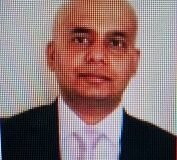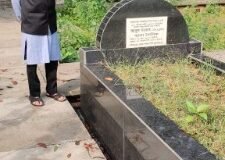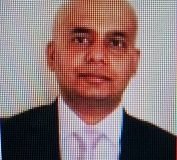 Bangladesh has come a long way over the last four and half decades from the maliciously coined phrase,
Bangladesh has come a long way over the last four and half decades from the maliciously coined phrase,
labelled by Henry Kissinger as the ‘basket case of the world,’ to self-sufficiency in food (and even as a net
exporter of food) and the healthy gross domestic product (GDP) resulting in significant foreign currency
surplus. All this had been achieved under the nose of the most inhospitable political environment and
pervasive national corruption. The political and economic pundits may scratch their heads to explain
these two seemingly irreconcilable facts – good economic achievement despite corruption and political
schism.
Now the political schism has reached such a crescendo that the nation is utterly rudderless and just
staring at an abyss. All the previous economic achievements, improvements in food production, and
healthy balance of payments are in their throes due to political masters pandering to their individual
egos. The two opposing political parties – the incumbent government of the Bangladesh Awami League
(BAL) versus the coalition of 20-parties led by the Bangladesh Nationalist Party (BNP) – have locked their
horns intensely and intend to fight to the last. How and why did this seemingly implausible situation arise
and where will it end? These are the persistent questions voiced all over the country.
But before attempting to answer these questions, one has to look back at the root of this conflict – the
conflict that lies at the very heart that led to the creation of Bangladesh. The conflict had been resolved
temporarily by the creation of this country, but the underlying cause remained unanswered. Bangladesh
came into being out of the aspirations of the people to have Bengali language and culture, not the alien
culture and language of West Pakistan or of the Middle East; democratic rights and freedom of
expression, not the autocratic dictum of the Pakistani dictators. Alongside these cultural and democratic
demands, there were demands for religious freedom, particularly when Pakistanis overtly viewed
Bengalis as religiously deviant and needed to be trained in Islamic culture. For the Islamic Republic of
Pakistan, religion was sacrosanct and overrode everything else and that attitude was totally unacceptable
to Bengalis. The two political parties upholding these two irreconcilable positions undoubtedly face the
conflict situation and that is now being reflected on a national scale.
Bangladesh came into being as the embodiment of aspirations of the people delineated above. At the
beginning of the liberation struggle, religious element was considered to be the enemy of peoples’
aspiration – as religion was imposed on the people by the Pakistani aggressors. But by the quirk of
historical development, the same religion has come to dominate the political landscape of the country
now.
Bangladesh’s original Constitution adopted on 4th November, 1972 enshrined four fundamental
principles: nationalism, democracy, socialism, and secularism. However, these four pillars of the
Constitution had been persistently tampered with at various times by dictators and democratically
elected leaders alike. These attempts to make the Constitution amenable to one’s political predicament
eroded the dignity and respect for the Constitution. Sheikh Mujibur Rahman, the father of the nation,
tried to do away one of the fundamental planks of the Constitution – democracy – by ditching the multi-
party system in favour of a single party (BKSAL) system in 1975. So soon after the creation of the nation
when the founding ideology was still very fresh in the hearts and minds of the people, it was too much to
bear for some headstrong freedom fighters and they took law onto their hands and assassinated the
father of the nation. ‘Democracy’ did survive, but the Constitution itself had suffered grievous bodily
harm.
After the turmoil of Sheikh Mujibur Rahman’s assassination in 1975, when General Ziaur Rahman took
over the reins of the country through a military coup, he started tampering with the constitution. He
amended Article 38, which prohibited religious politics and banned religious parties like Jamaat-e-Islam
to get into the political sphere, thus allowing religion into politics. He removed the word ‘secularism’
from the constitution and incorporated the term ‘to place full faith in Almighty Allah.’ He also inserted a
new clause in Article 25(2) under the heading ‘Islamic Solidarity’ which allowed fraternity with Muslim
countries. With all this groundwork, he laid the foundation for his political party called the Bangladesh
Nationalist Party (BNP) in 1978. It is no wonder that his party became the magnet for Islamists and
affiliated parties such as Jamaat-e-Islami, Jamaatul Mujahideen of Bangladesh (JMB) and so forth. This
was the beginning of Islamisation of Bangladeshi politics.
After the brutal assassination of Ziaur Rahman in 1981, General Ershad eventually took over the power in
a bloodless coup d’état in 1982 and he carried forward Islamisation further with enthusiasm. He made
‘Islam as the State religion’ by the 8th amendment of the Constitution in June 1988. This marked the total
abrogation of ‘secularism’ from the constitution. With the financial help from of Saudi Arabia (to
propagate Wahhabism), madrasas proliferated all over the country and more than 250,000 mosques
were set up. Although democracy was somewhat restored when Ershad was removed following the 1990
election, the Constitution could not be reverted back to its original version.
The 15th amendment to the Constitution in 2011 under Sheikh Hasina’s last term did make extensive
changes to the Constitution. That amendment did try to restore the Constitution to its original state, but
the Islamicised politics became so entrenched in the national politics that it became an impossible task.
The word ‘secularism’ became almost a dirty word and synonymous to anti-Islamic vocabulary.
Secularism as one of the fundamental principles was reinserted, but Islam as the State religion was kept
and the phrase ‘Bismillah-er-rahman-ar-rahim’ was retained above the Preamble. Thus the Constitution
became a hodgepodge of political and religious interplay. But the most important element that was
carried out under this amendment was the removal of the Caretaker system introduced in the
13th amendment. The present political loggerhead derives from this point.
While this constitutional amendment was underway, the tug-of-war between the Islamists, led by
BNP/Jamaat coalition and the secularists, led by the BAL ensued. The secularists were branded as anti-
Islamic, pro-Indians et cetera by the BNP/Jamaat group; whereas the BNP/Jamaat was castigated as die-
hard Islamists supporting al Qaeda/Taliban. There are other elements to the present political conflict. The
most important one is the mutual distrust of these two parties – each claiming the other to be thoroughly
corrupt and incapable of conducting a free and fair election. On top of that, the two leaders have their
visceral antipathy, which does not help in resolving conflicts.
The national election of 2014, after months of agitation and grotesque violence, was shunned by the BNP
on grounds that BAL would rig the election, as the election was going to be conducted under the
incumbent government. The Awami League pointed out that it was the constitution requirement, but was
prepared to concede an interim administration comprising all main parties that would oversee the
election. The proposal was also rejected by Khaleda Zia on the same ground of perceived rigging. The EU,
USA, and even the UN offered to send observers to supervise and oversee the conduct of the election,
but that did not satisfy Khaleda Zia. The election was, however, held on 5th January 2014, despite violent
opposition by the BNP/Jamaat coalition. Needless to say, overwhelming majority of the elected MPs was
from the BAL party.
Whereas in the previous administration the BNP was the official opposition party enjoying the status and
privileges admissible within parliamentary democracy, in the new administration BNP has no MPs in
parliament and consequently has no active role in parliamentary democracy. Absence of any BNP MP in
parliament must have made BNP a lame duck party. Seeing no other way, Khaleda Zia started agitating
and demanding that the present government resigns henceforth and declares a snap election date.
When Khaleda Zia gives her action programme for blockades (leading to vehicle destruction, train
derailments, burnings et cetera) in the name of ‘establishing democracy,’ what democracy is she talking
about? Can barbarism and vandalism establish democracy? Is she not totally delusional? Since 5th January
more than 60 innocent people were killed, hundreds suffered burns, and more than five hundred vehicles
destroyed. The 20-party alliance, led by the BNP, proudly proclaims that “the alliance on behalf of the
people has continued their glorious, valiant and heroic struggle against mindless and brutal BKSAL
fascists!” The death and destruction of common people are probably collateral damage in their jargon of
‘glorious struggle’ and everything goes in their stride to gain power.
Demanding an election by sheer force of vandalism is extremely reprehensible. There must be a legal
process for conducting the election. If a political party feels aggrieved, it must appeal to the public and
mobilise their support. Blockades, strikes, and intimidation of the people are definitely not democratic
process, and to say that these are all done in the name of democracy is an egregious falsification.
Nonetheless, a situation of vicious stalemate has arisen where BNP/Jamaat is adamantly pursuing its
violent programme and the present government is sticking to its high moral ground where no discussion
can take place until violence is renounced. Some sort of half-way compromise by both the protagonists
can be carried out – BNP can withdraw its programme of hartal/blockade with a notice period of two
days and the government can give some assurance within those two days that discussion would take
place regarding future election process.
This election process may require the public mandate: do people approve of an independent caretaker
government to oversee the election process or not? This approval process may take the form of a
Referendum. This Referendum may be conducted within a year or two. But the present government must
run its course and prepare the ground for any constitutional change that may be required following this
discussion.
Dr A. Rahman is a Nuclear Safety Specialist with over 32 years of experience in the British civil and military
nuclear establishments.
 Weekly Bangla Mirror | Bangla Mirror, Bangladeshi news in UK, bangla mirror news
Weekly Bangla Mirror | Bangla Mirror, Bangladeshi news in UK, bangla mirror news




